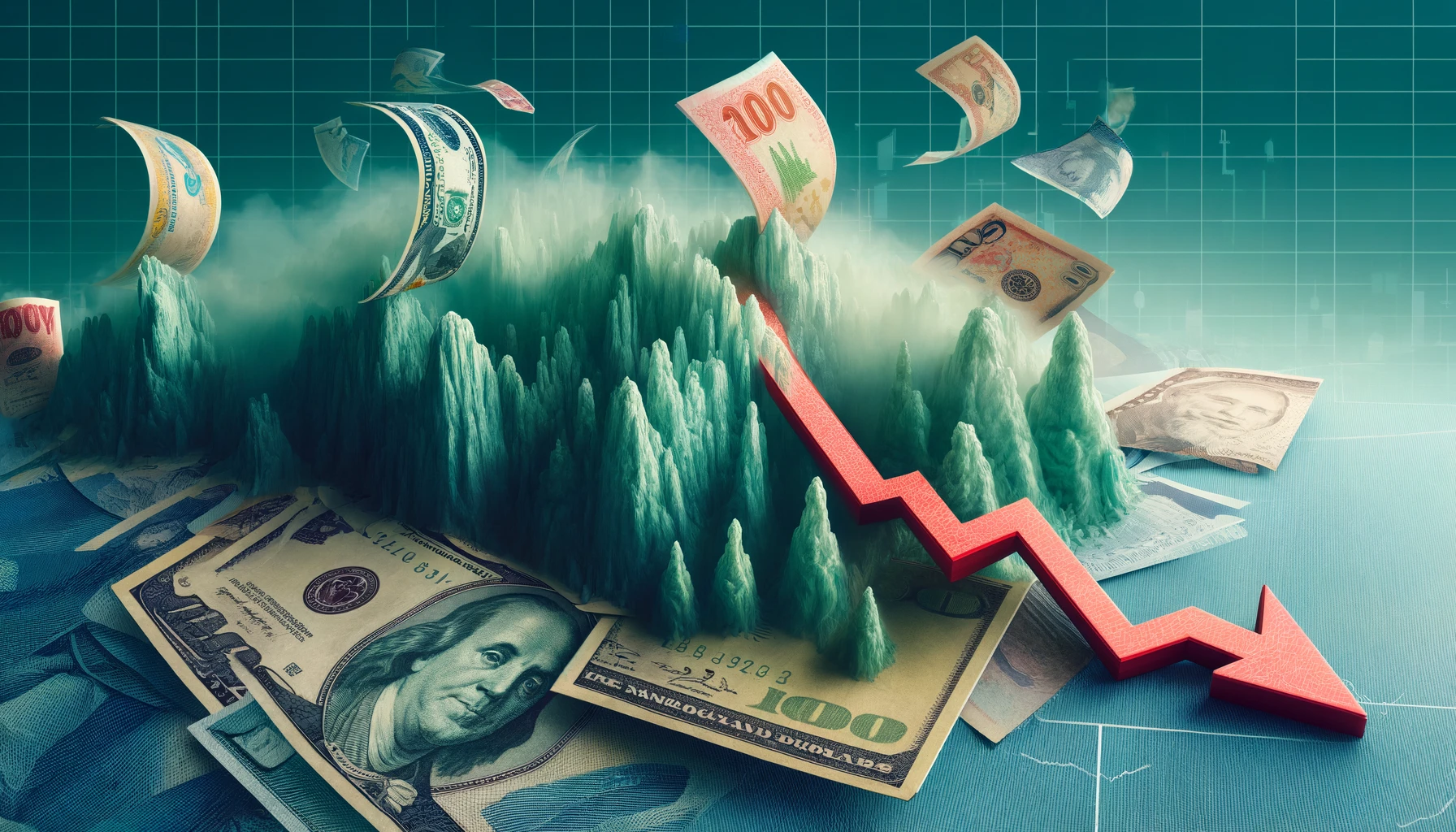Lebanon has experienced a remarkable decrease in inflation, dropping to double digits for the first time in nearly four years. This change comes as local businesses increasingly opt to price their goods in U.S. dollars rather than the Lebanese pound.
Economic Transformation Amidst Crisis
Since the financial collapse in 2020, triggered by Lebanon defaulting on $30 billion in international bonds, the nation’s economy has been in a dire state. This collapse decimated the life savings of many and led to the plummeting value of the Lebanese pound.
In an effort to stabilize their operations, numerous companies across Lebanon have switched to pricing their products in dollars, a move that has now been adopted by most retail sectors including supermarkets and restaurants.

This dollarization process has helped reduce the inflation rate, which was reported at 70.4% last month, down from 123% in February. It’s a stark decrease from the staggering 269% inflation rate reached in April 2023, according to Lebanon’s state statistics agency.
Despite this improvement, the majority of the population, still earning in Lebanese pounds, faces increased hardship due to limited access to the now predominant dollar economy.
The stabilization of the Lebanese pound in the black market has also contributed to the slowing of inflation, yet the country’s economic stability remains precarious.
The economic hardships have been exacerbated by recent regional conflicts, notably the ongoing tensions between Hezbollah and Israeli forces, which threaten to disrupt the tourism sector that had shown signs of recovery prior to the conflict.
Persistent Challenges and Resilience
Lebanon’s financial system faced a catastrophic breakdown in 2019 due to unsustainable public debt and widespread corruption, leading to restricted access to bank deposits and widespread public unrest. The so-called “October Revolution” saw massive protests, and billions in deposits remain frozen to this day.
The subsequent declaration of bankruptcy by Lebanon’s government and central bank in 2022 marked a low point, yet the private sector has displayed notable resilience.
The World Bank noted that private consumption was strengthened by remittances and tourism, anticipating a minor growth in 2023 — the first since 2018. However, these projections were later adjusted downward due to the economic impact of military conflicts involving Hezbollah and Hamas.
In the streets of Beirut, frustration boiled over in late March when depositors protested outside the Central Bank, demanding access to their frozen savings. Many Lebanese have resigned themselves to the likelihood that these savings may never be fully recovered.
Meanwhile, the everyday financial operations have largely shifted to cash transactions, with remittance services and currency exchanges replacing traditional banking functions.
The currency’s devaluation has led to a unique phenomenon in Lebanon’s financial landscape, with three types of currencies now circulating: the Lebanese pound, U.S. dollars, and “lollars” — a term for dollars that are trapped in bank accounts and can only be withdrawn at a fraction of their value.
Amidst these challenges, Lebanon’s diaspora plays a crucial role, sending home billions in remittances that now constitute a significant portion of the country’s GDP. This financial inflow remains robust, buffering the economy against the worst of the local financial turmoil.





